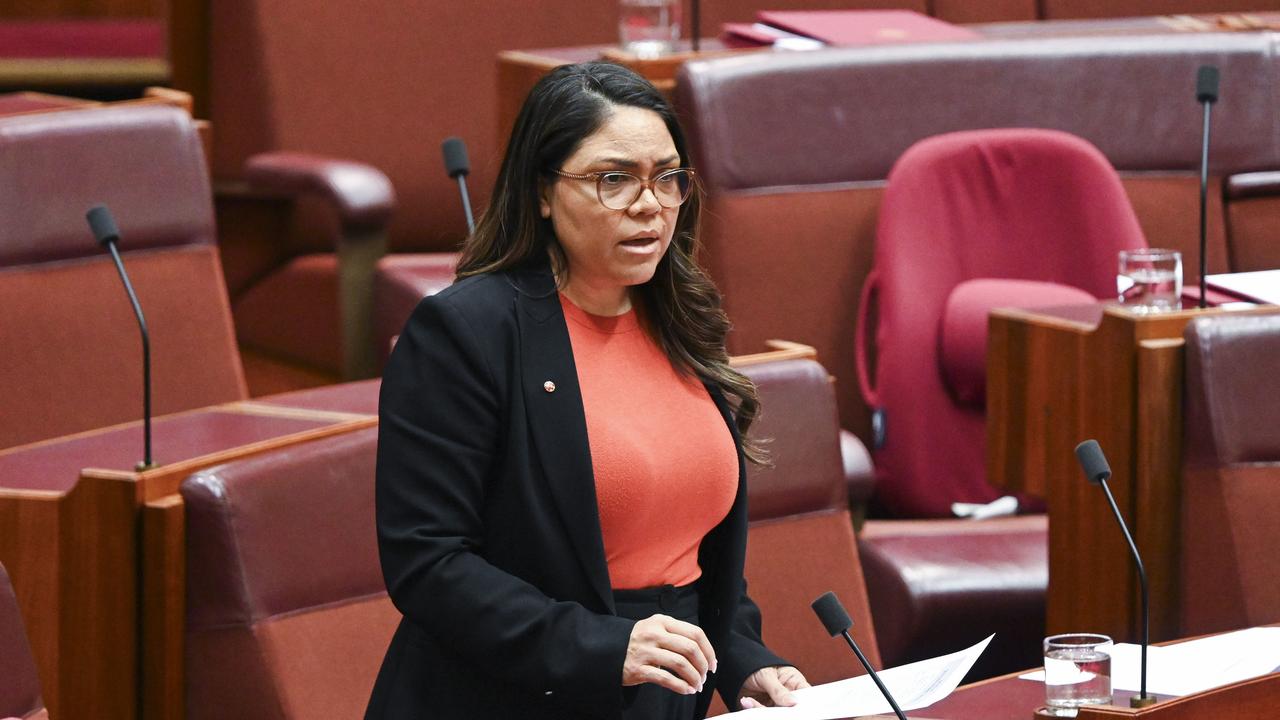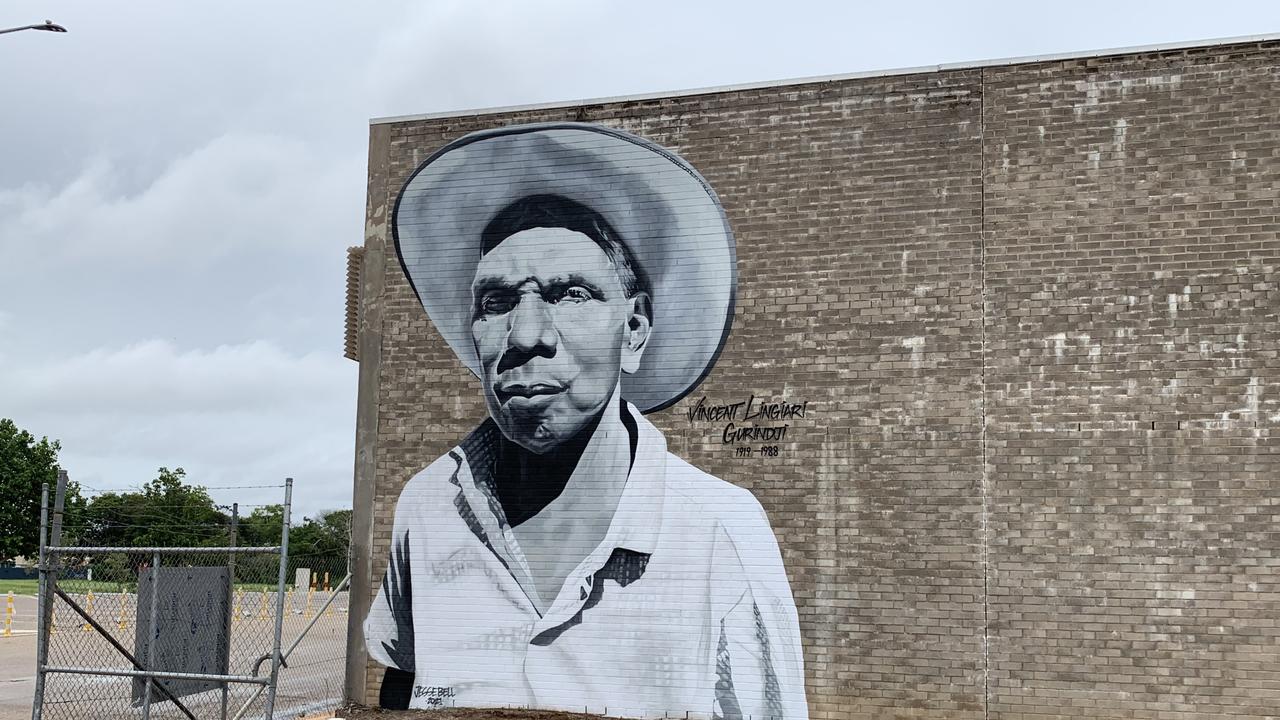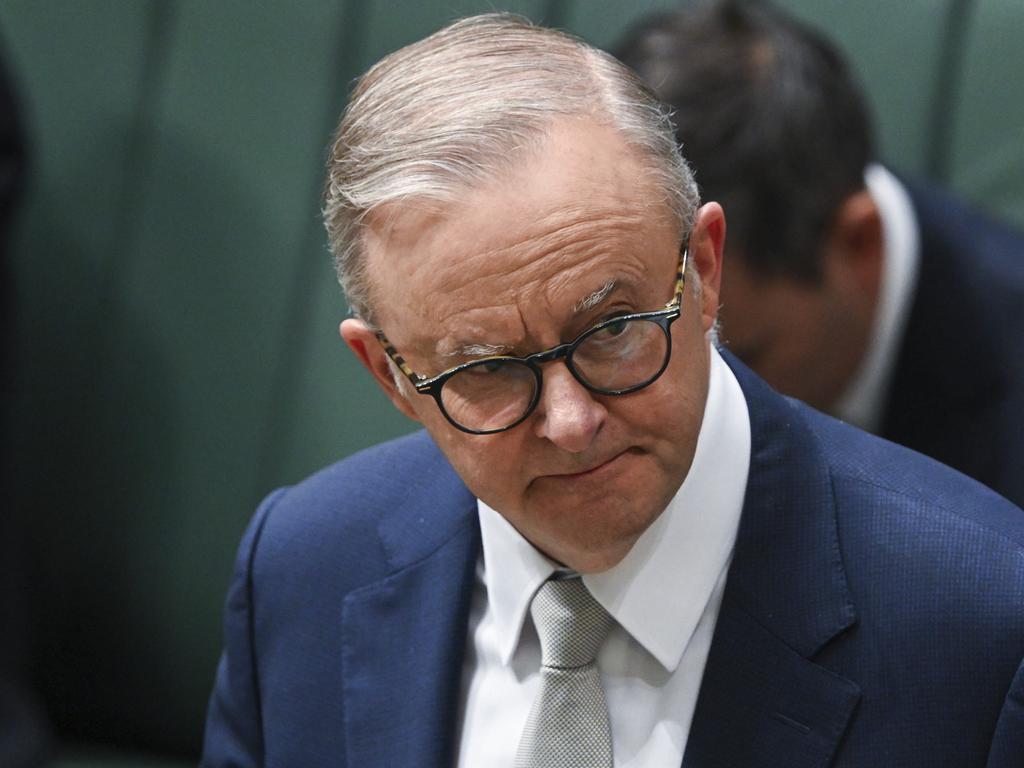Indigenous voice to parliament isn’t merely a good idea – it is the decent thing, writes Greg Craven


The great challenge with constitutional change is that it becomes – literally – all about words. We forget whatever great good we are aiming for, and rather contend for the perfect adjective or the divinely inspired comma. We are so terrified of the instrumental word-slip that we forget the great imperative the words are meant to serve.
While the constitutional voice was forced in the parliament to duel with dictionaries and thesauruses, the passage of the bill allows us to return to the fundamental truth about successful constitutional amendments. Words are the servants of great constitutional ideas, not the other way around. The heart of those ideas are moral imperatives, not syntax.
Every great constitutional exercise has centred on matters of profound principle. The anti-slavery amendment to the US constitution was not a property law reform or even a realignment of the rights of the states. It was a proposition of humanity.
In Australia, we are famously constitutionally pragmatic, but we need to take a deeper look at the sprawling constitutional project of Federation. Signally imperfect as it was for Indigenous Australians, this was not the administrative reorganisation of the existing colonies. It was the birth of a nation in confidence and hope. The words of the Constitution did not really create Australia. Australia justified them.
As the referendum on the voice goes forward, we need to recapture the notion of constitutional spirit – a concept as familiar to Deakin and Barton as it was to Hamilton and Adams – from the closed fingers of constitutional actuaries. The voice is about the soul of our country, and there is nothing more basic, important and down-right pragmatic as the possession of a soul. Or as our forebears often put it, a good heart.
As people of good heart, we should not automatically default to the baser character of our days: to weigh, to calculate, to carp and to critique. We need to ask – intelligently and with proper judgment – not just what conceivably could go wrong if everything went against us but what should go right given pervasive goodwill and even average good fortune.
We should look at the concept of the voice not through a cracked microscope but a modestly lit window. What is the actual opportunity, rather than the determinedly imagined Frankenstein’s monster? On offer is not a cynical grab for power by a shadowy Aboriginal aristocracy. Frankly, if it were, we would be more than smart and tough enough to frustrate it, before or after referendum.
Nor is this constitutional impetus about “doing something” for Indigenous people. We have tried that for decades, and it has failed, as much for having at its heart a corrosive condescension to helplessness as for any other reason. Indigenous Australians will never rise simply through funding, philanthropy, help, sympathy, compassion or pity.
The only route by which a great people can embrace the indispensable indigeneity of its character, and the people who embody that character, is solidarity.
Solidarity is not some shallow trademark of retro-communists or showy trade unions. It is the sublime concept that people not only live within but within each other. In a Christian context, for example, it means that every person’s humanity is amplified, not qualified, by their commitment to others. The same principle runs through every major religion and most respectable political ideologies.
This is how we must approach our Indigenous brothers and sisters in the referendum. We are not going to give them something, or give up something ourselves, but do something mighty together.
At Federation we created a commonwealth. Now, we advance it.
In fact, Federation is an instructive example in the current wilderness of virulence around the voice. Can anyone doubt that the present No case would have been the No case then? The different states will divide the people. The bureaucracy will run amok. It will all be just too complex and expensive. The risk is just too great.
Listen carefully and you hear the same grudging growls. Those thought leaders who wish to strangle the voice out of contemptuous caution would have throttled the Federation they now flaunt. But the Australian people did not listen. Commonsensical and pragmatic, but still conscious of an irrepressible destiny, they voted Yes. The direct descendant of that vote would be the vote for the voice in October.
One of the great challenges in promoting the voice is that the sort of discussion required is emotionally counterintuitive to Australian public debate, let alone the constitutional politics of our country.
National stereotypes aside, and dismissing the occasional flocks of eccentric fringe protesters, we are not a polity given to the ostentation of public principle. We are not skites of constitutional and public virtue.

Many countries are. The US celebrates its bill of rights and the constitutional bonanza it confers in an unceasing national festival. Its historic failures for numerous racial and other minority groups, and its distortion of representative democracy, are not invited guests. France prosecutes a posterity based on a principle of glory that apparently underlies its numerous failed republics and catastrophic record of lost wars.
Even the British boast and swagger over their timeless constitution. They propound the mother of parliaments, Magna Carta (a parchment for the protection of earls) and the Glorious Revolution, actually a successful bid in aristocratic treason. The stiff upper lip curls in a thin smile of self-congratulation, set to the tune of Rule Britannia and Pomp and Circumstance. It is very hard to imagine constitutionally laconic Australians cavorting for anyone or anything.
But with the voice, a sober enthusiasm has to be achieved if it is to succeed. Australians will never be conned but will need to persuade themselves. The question is how this can happen without an emotionalism and hoopla they will never accept.
One insight is from the sorts of people Australians historically have regarded as being so compelling that they’re heroes: not Ned Kelly-type bunting but genuine figures of public reverence.
From totally different contexts, you might pick our only saint, Mary MacKillop; our most enduring war hero, Jack Simpson (and his donkey Murph); and, particularly in the current context, those two great Indigenous exemplars, senator Neville Bonner and Vincent Lingiari. All of them shared three features.
The first is a predictable lack of “side” or “show”, the true good manners of being Australian.
MacKillop laboured behind a veil. Simpson was shadowed by Murph. Bonner and Lingiari were soft-spoken, humble and self-deprecatory.
The second is that each devoted their lives to a vast project, not national needlework. MacKillop educated and salvaged a desperate Irish-Australian peasantry. Simpson saved multiple lives and gave dignity to hopeless suffering in impossible circumstances. Bonner and Lingiari advanced the justice of their people in the face of the stinging grit of disdain. These were all people who gave a resounding Yes to a truly great work.
The third glaring reality of these lives is that they personified a willingness to embrace risk in the service of good. MacKillop had no business plan, and the chance that she would establish an entire school system was infinitesimal. Simpson threw his life into the dirt of Gallipoli every time he went up some shattered gully. Bonner and Lingiari could never fully know a new Australia each time they fielded insult and injury.
The moral lesson for the voice is that great causes are not won by insurance policies and niggardly doubt. They are achieved by courage and intelligence yoked in the service of profound, national, common principle.
The impetus that prompted a religious sister, a mule driver and two Indigenous men without formal education is the principle that binds Australians as individuals, a nation and a people. That principle also animates the voice.
It is the principle of extravagant fairness.
Many individuals, nations or groups can be fair in the sense that they are not consciously unjust and try not to be too nasty. But extravagant fairness is completely different. This is the fairness that is not only just but generous, joyful, enduring and productive. It is the sort of profound fairness that activated both the Good Samaritan and Weary Dunlop, blessing both receiver and giver.

This is the fairness of MacKillop and Bonner, and it is on this sublime national trait – ourselves at our very best – that the case for an Indigenous voice must be based. The strength in fairness, fairness in strength, that is so powerfully expressed in the notion of a fair go.
Appeals to history may be inspiring and even apt. But Australians usually blush at the suggestion of intergenerational praise and are apt to look at its guarantors as the property developers of posterity. But fairness they instinctively understand, as an imperative and a life choice. Postmodern cynics love to deride the concept of a “fair go”, but in a world of self-actualisation and life coaches it probably is the one purely moral proposition that has explicit everyday currency in contemporary Australian existence. When Australians become convinced that a constitutionally enshrined voice represents a fair go for their Indigenous brothers and sisters, they commit to voting Yes.
Undecided voters will vote for it not because they want to feel good about it, let alone because they like the wording, but because it is the right thing to do.
It is our grandmothers’ injunction about doing the “decent thing”. Decency is not merely rightness. It is a consciousness that our actions not only benefit others but in so doing make ourselves better, more human people. As when, in the creation of the voice, the privileged citizens of a nation reach out to some of the nation’s most powerless, the relationship becomes one of equals. Not merely because the voice is a good idea but because it is in the fullest sense just.
The prevalent tone of Australian history is cynical and sarcastic, but potent instances of national decency are not hard to find, often arising out of previous acts or policies of national shame. The justice meted out to the Myall Creek murderers of Aboriginal people was decent. The refusal of the Australian people to vote at referendum in favour of outlawing of the Communist Party, even at the height of the Cold War, was decent. Our historic welcome to the poor, displaced and fugitive from overseas has been decent.
The great challenge of the voice referendum is to engage the potent Australian sense of fairness with the enabling of our Indigenous people. There is so much story and history here that there is almost too much. In the swirling accounts of suffering and dispossession, we all need at least one story that drags at our soul.
Mine is from a dear Indigenous friend, dating back to his grandfather’s time before the war. His people came from NSW, across the Great Divide. They worked hard in hard jobs, splitting timber, working cattle, the odd factory job. In the town, they were not so much hated as tolerated.
One day the trucks turned up at the school. The kids were loaded up. Then the trucks drove around the streets and the mothers were told they would never see their kids again if they did not climb aboard. They were loaded up. Then the trucks drove to the workplaces and told the fathers they would never see their families again if they did not come too. They were loaded up. They were all driven hundreds of kilometres west, away from their lives and their country.
It is the banal administrative indifference that strikes you. It was not about doing evil but about spiritless efficiency. There is a bizarrely hurtful footnote. By an incredible effort that can barely be imagined, my friend’s grandfather had £200 saved in the bank. He had taken our country at its word, and worked for the betterment of his. He never saw his money again. He was robbed.
This awful story, and all like it, are blasphemies against the fair go. They are libels on the betterness of ourselves and our nation, which must be repudiated, and the notion of giving a voice to the descendants of this great and good man could not be more apt.
One of the truly miserly tunes against the voice is that there are other groups who have suffered, others who have felt the sting of discrimination, so why should we single out Indigenous people? As an Irish-Australian, I have ancestors who suffered starvation, dispossession, bigotry and even massacre. Many Vietnamese citizens remember expulsion and imprisonment, and many of our Indian diaspora have lived the refusal of opportunity and disdain.

Yet to expect jealous rejection of Indigenous people by Australia’s great multitude of the previously disadvantaged is a calumny on every Australian Indian, Chinese, Jew, Sudanese or Irishman. On the contrary, the natural feeling that subsists between those who have suffered and those who suffer is a deep empathy. The voice is the occasion for companionship, not contempt.
There also needs to be remembrance. Our richly varied immigrants need to ask themselves which Australians tried their hardest to keep them out, to claim they were dangerous, to say the cost would be too high. It was not Indigenous people.
But when one looks to the bastions of those who are opposed to the voice, there are those same icy sceptics. The lofty who now say the voice will create overpaid Indigenous bureaucrats are the same who said the Chinese would take work, and the Indians never fit in.
It is the same with division, the theme music for the No case. Its proponents claim terror at the fictitious notion of a people divided through the voice by race, but their direct ideological ancestors – some embarrassingly close – inveighed against an Australia divided by the inclusion of coloured ethnic misfits. The Vietnamese would never play cricket and the Chinese would never embrace democracy. Those Catholics breed.
The appalling irony here is that extreme opponents of the voice actually revel in division. Their entire strategy is to ensure that the referendum does indeed divide the Australian electorate so that a majority – however thin – is alienated not only from the voice but from the Indigenous people for whom it would speak.
For these opponents, it will be a good campaign’s work if any burgeoning, institutional alliance between black and white Australians – a work of the left and culture war guerrillas if ever there was one – were to be permanently sidelined. Hence the grotesque language of apartheid to describe the voice. They hijack a monstrous form of racism to impugn a design of national harmony. Whatever is beyond disinformation, this is it.
There are some views that are very hard to rationalise in the voice referendum. Of course, every one of us striving for the voice have friends on the No side, some very active. Other acquaintances are undecided or just plain confused. They may frustrate and even infuriate us. But these are honourable people striving to make sense of their constitutional obligations. No one is entitled to revile them.
Yet there are others, though mercifully few. These are not dissentients of goodwill but hard hearts. For whatever reason, Indigenous people appear an ideological enemy. They dislike any Indigenous cause that doesn’t align with their punitive thinking and deficit ideology. They revel in the language of division and discrimination. Unlike every decent Yes or No voter, they do not contemplate a failed referendum with concern. They savour the thought.
To force these souls of negativity towards alternative reality, what sort of Australia do you actually want? Yes, we understand the rhetoric of radical equality, but what are we going to do with that? Where is the place for co-operation, tolerance and shared commitment in your bleak wasteland of purist liberal theory? What sort of nation are we going to create, rather than prevent?
These ideologues do not represent the bulk of the Australian people. They should not be allowed to con the Australian people. They have no idea of the fairness of the Australian soul. And I hope the Australian public repudiates their ideas by voting Yes.
Over history, many truly awful people have talked about national destiny. Usually this means some great turning point, or new direction. But on the issue of the voice, the great issue of destiny for Australia actually is static in the very best sense: do we remain loyal to ourselves, and our creed of fairness?
The voice will enable those who have 65,000 years of connection to this country, who are now our most dispossessed, to talk to us, yes, with measured authority, but not with a veto. We are indeed the people of the fair go. How is this not fair?






No constitutional amendment is easy, and from our current vantage point the Indigenous voice looks as hard as any. An idea formed in justice and empathy is surrounded by critics, nay-sayers and outright enemies. There are more quibbles and confusions than genuine debates and conversation.